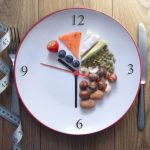
A bad marriage can break your heart — literally. Heart attack survivors in a stressful relationship are more likely to have a rocky recovery, a new study reports. “We found there’s an independent association between severe marital stress and worse outcomes within their first year of recovery,” said lead researcher Cenjing Zhu, a doctoral candidate in chronic disease epidemiology at the Yale School of Public Health. Compared to people in healthy relationships, heart patients under severe marital stress were 67% more likely to suffer recurring chest pain during the first year of their recovery, Zhu and her colleagues found. Severe marital stress also increased a person’s chances of rehospitalization by nearly 50%, and affected their quality of life and health. On a 12-item scale, for example, participants with severe marital stress scored 2.6 points lower in mental health and more than 1.6 points lower in physical health, compared with those reporting little to no stress. Zhu is scheduled to present the findings Sunday at the American Heart Association’s annual meeting, in Chicago. The findings shed new light on the nuanced effect that relationships can have on a person’s health, said Dr. Nieca Goldberg, medical director of Atria New York City and a clinical associate professor of medicine at NYU Grossman School of Health. “Earlier studies on marriage found that people who were couples have better… read on > read on >


















